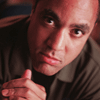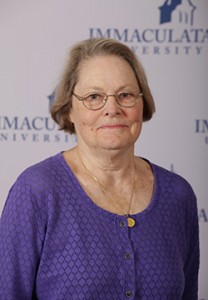Spring 2016 Semester
Friday, April 15th, 4:00-5:30pm, Morgan Hall D301
3rd Annual Language, Linguistics, and Life Conference at Temple University
Language, Thought, and Reality in a Global Context
This conference aims to address the following questions: How does language structure and become structured by (everyday) reality? What is the relationship between language and thought, and how do these relationships vary across global contexts? In what ways can studies of language and thought help us to understand reality? How do we, as scholars of language, understand the relationship between language and thought, and what can be done to bring this understanding to a broader global context?
Featured plenary speakers: Dr. John Lucy (University of Chicago) and Dr. John McWhorter (Columbia University)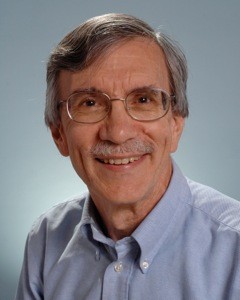
Bio: John Lucy is the William Benton Professor in the Departments of Psychology and of Comparative Human Development at the University of Chicago. He has done over thirty years of ethnographic, linguistic, and psychological research among the Mayan-speaking people of the Yucatan region of Mexico, which resulted in two ground-breaking books Language Diversity and Thought (Cambridge University Press, 1992) and Grammatical Categories and Cognition (Cambridge University Press, 1992). Lucy has been Guggenheim Fellow, a Mellon Fellow at the Center for Advanced Study in the Behavioral Sciences, and a Visiting Fellow at the Max Planck Institute for Psycholinguistics. He has received major research grants from the National Endowment for the Humanities, the National Institutes of Mental Health, the Department of Education, the Social Science Research Council, and the Spencer Foundation.
Bio: John McWhorter is Associate Professor of English and Comparative Literature at Columbia University, teaching linguistics, Western Civilization and American Studies. He earned his PhD in linguistics from Stanford University in 1993 and became Associate Professor of Linguistics at UC Berkeley after teaching at Cornell University. He was Senior Fellow at the Manhattan Institute from 2002 until 2010.
His academic specialty is language change and language contact. He is the author of The Power of Babel: A Natural History of Language, Doing Our Own Thing: The Degradation of Language and Music in America and Why We Should, Like, Care and Our Magnificent Bastard Tongue: Untold Stories in the History of English. He has also written a book on dialects and Black English, The Word on the Street. His academic linguistics books include The Missing Spanish Creoles: Recovering the Birth of Plantation Contact Languages, Language Interrupted: Signs of Non-Native Acquisition in Standard Language Grammars, and two article anthologies, Defining Creole and, released in 2011, Linguistic Simplicity and Complexity: Why Do Languages Undress? The Teaching Company released his 36-lecture audiovisual course The Story of Human Language in 2004 and The Science of Language in 2008.
Beyond his work in linguistics, he is the author of Losing the Race, an anthology of race writings Authentically Black, Winning the Race: Beyond the Crisis in Black America, and All About the Beat: Why Hip Hop Can’t Save Black America. He has written on race and cultural issues for The New York Times, The New Yorker, New York Magazine, Time, The New Republic, The Washington Post, Forbes, Ebony, Vibe, The New York Daily News, The Chronicle of Higher Education, The Wall Street Journal, The National Review, The Los Angeles Times, The American Enterprise, Books & Culture, and City Journal. He was a weekly columnist for the New York Sun from 2006 to 2008 and has written a monthly “That Being Said” column for The Daily. He has appeared on Meet the Press, The Colbert Report, Dateline NBC, Politically Incorrect, Talk of the Nation, Today, Good Morning, America, The Jim Lehrer Newshour, C-SPAN BookNotes In Depth, The Charlie Rose Show, the Bill Moyers Journal, Parker/Spitzer and Fresh Air, has done occasional commentaries for All Things Considered, appeared weekly on NPR’s News and Notes, has appeared regularly of late on MSNBC’s Up With Chris, and appears regularly on Bloggingheads.TV. He is also Contributing Editor for The New Republic, columnist for The New York Daily News and Contributing Editor at The Root.com, and City Journal.
His book What Language Is, What It Isn’t, and What It Could Be was published in 2011, and a third Teaching Company course, Myths, Lies and Half-Truths of Language Usage was released in 2012. Since January 2011, he has produced and played piano for a monthly group cabaret show, New Faces, at the Cornelia Street Cafe in New York City.
Wednesday, January 27th, 4:00pm, 821 Anderson Hall
Sponsored by the Department of Spanish & Portuguese at Temple University (cla.temple.edu/spanpor facebook.com/spanpor)
Dr. James P. Lantolf, Pennsylvania State University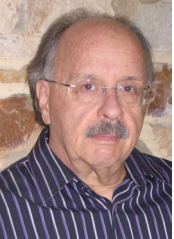
Title: Sociocultural Psychology and the Pedagogical Imperative: L2 Developmental Education
Abstract: In this presentation I will argue that the assumption that language acquisition guided by “natural psychological processes” is the same no matter where or when it happens is problematic. I will argue instead that language development as it occurs in educational settings is, or at least, should be, a different process from what transpires in everyday immersion settings. Vygotsky conceived of education as a special kind of developmental process whereby learners encounter the object of study under “artificial” circumstances where intentional and well-organized instruction results in development that differs from what occurs in the everyday world. Accordingly, education provokes development through explicit systematic understanding of the object of study, including second languages. Our task is to make this knowledge available to learners in a systematic and pedagogically useful way and to help them make the connection between this knowledge and their own practical activity. In the presentation I will consider four studies carried out in accordance with Vygotsky’s educational principles: the first focuses on the development of English verb-noun collocations with make, take, do, get, and have; the second deals with English phrasal verbs such as look up, spread out; the third instructs learners how to detect and interpret sarcasm, a pervasive feature of everyday spoken English; the fourth is an approach to teaching L2 reading through a division-of-labor pedagogy.
Thursday, February 25th, 3:30pm, Kiva Auditorium
Margaret van Naerssen, Immaculata University
Title: Forensic Linguistics: Can Words Help Contribute to Justice?
Abstract: In a “love triangle”, was the girlfriend a co-conspirator in the murder and robbery of her other “friend” that her jealous boyfriend killed? Was the girlfriend’s voice heard? In a sting operation involving the sale of “stolen goods,” did the undercover cop make it clear to the non-native speaker “target” (purchaser) that the goods were “stolen”? After all, everyone knows what “steal” means, right?!
Using actual criminal and civil examples, Dr. Margaret van Naerssen shares how linguists can assist law enforcement officers, attorneys, and the court in their work by analyzing both spoken and written language. Language evidence might come from police interviews and interrogations, the courtroom, traffic stops, recorded conversations, written documents, e.g., threatening communications or police reports, language testing data, etc. Of particular concern with non-native English speakers is whether the suspect is faking a lower than truthful English proficiency.
Bio: Dr. van Naerssen is on the faculty at Immaculata University and is an expert consultant/witness in forensic linguistics, focusing primarily on cases involving non-native English speakers. She is also occasionally an English language specialist overseas with the US Department of State. Since 1997 she’s done expert consultant/witness work in forensic linguistics at federal and state levels, in criminal and civil cases involving murder, rape, drugs, money laundering, robbery, fraud, contract and plain language guidelines, slander, medical malpractice, and interpreting issues. Most cases involve non-native speakers of English. She’s given presentations on forensic linguistics at the Smithsonian Institute, Washington D.C. and the FBI Academy as well as at professional conferences, including the 2013 PA State Trial Judges Conference, and in a continuing legal education program. She’s published in the areas of language proficiency and evidence. Contact information: margaret.vannaerssen@gmail.com
Wednesday, February 10th, 3:30pm, Kiva Auditorium
Diane Larsen-Freeman, University of Michigan/University of Pennsylvania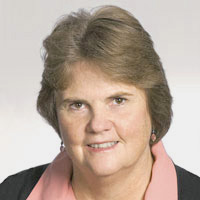
Title: Emergent Patterns in Language
Abstract: Both conventional and Innovative language patterns emerge from use. Collectively, they take the shape of a fractal, a geometric pattern that is self-similar at different levels of scale. Fractals characterize much of the natural world, but they are also true of language. Fractal patterns are generated through iteration. Language teachers can take advantage of this fact by creating or adapting iterative activities with which to engage students. Importantly, iteration is distinct from repetition and recycling.
Bio: Diane Larsen-Freeman is Professor Emerita of Education, Professor Emerita of Linguistics, and Research Scientist Emerita at the University of Michigan, Ann Arbor. She is also a Professor Emerita at the Graduate SIT Institute in Brattleboro, Vermont and a Visiting Senior Fellow at the University of Pennsylvania. Her most recent books are Teaching Language: From Grammar to Grammaring (2003), Complex Systems and Applied Linguistics (2008, with L. Cameron), winner of the Kenneth Mildenberger Book Prize, the third edition of Techniques and Principles (2011, with M. Anderson), and the third edition of The Grammar Book, Form, Meaning, and Use for English Language Teachers (2015, with M. Celce-Murcia).
Thursday, March 24th, 3:30pm, Walk Auditorium
Jennifer Leeman, George Mason University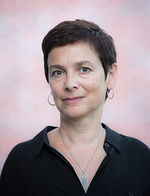
Title: Becoming Hispanic: Sociocultural perspectives on the negotiation of ethnoracial classification in the US Census
Abstract: Critical examinations of censuses have investigated their role in the construction of nations and in the officialization of specific racial discourses (Anderson 1991, Nobles 2002, Leeman 2013, Urla 1993). However, most research on ethnoracial classification has focused on census materials, without examining the practices of census-taking. Researchers as well as the general public often seem to assume that official discourses are passively taken up by the populace, despite the fact that there have been, and continue to be, numerous grass-roots movements protesting particular categories or advocating for the inclusion of others.
The decennial census is the single activity in which all US residents are expected to participate, regardless of age, citizenship or immigration status. For many immigrants, it is the first time they must explicitly self-identify according to the official US ethnoracial classification system, which uses color-based, nationality-based, and language-based categories in a seemingly arbitrary way, and which differs from official classifications and lived experience in other places. Thus, in addition to source of racial discourse, the US Census is also a key site of socialization into US-based racial identities.
In this talk, I analyze Spanish-language telephone interviews from the 2010 Census and investigate interviewers’ and respondents’ interaction during the completion of the Hispanic Origin and Race questions, paying special attention to contradictions and conflicts between the official classification system, Census Bureau directives to interviewers, the interviewers’ presentation of ethnoracial classification, and the respondents’ explicit statements of their own identities.
Utilizing a sociocultural approach to the study of identity (Bucholtz & Hall 2005), I demonstrate that rather than passive recipients of the census’ racial discourse, interviewers and respondents alternatively resist and take up the official categories and the identities ascribed to them. My analysis highlights the negotiated nature of ethnoracial statistics, and the intersections of place of birth, ethnicity and language in the co-construction of US racial identity.
Bio: Jennifer Leeman is Associate Professor of Spanish Linguistics at George Mason University where she teaches courses on Spanish in the US, sociolinguistics, multilingualism, and heritage language education. She also serves as Research Sociolinguist at the US Census Bureau where she conducts research on multilingual survey development and administration, with special attention to the race, ethnicity and language questions. Her current research focuses on the construction and negotiation of ethnoracial identities in the US census, the interplay of ideology, policy and measurement in the production of national language statistics, and critical approaches to the teaching of Spanish as a local-foreign language. She has published in numerous journals and volumes, with recent articles appearing in the Annual Review of Applied Linguistics, Modern Language Journal, and the Heritage Language Journal.
Wednesday, April 13th, 3:30pm, Walk Auditorium
Jean-Marc Dewaele, Birkbeck College, University of London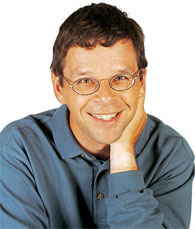
Title: Emotions in foreign language learning
Abstract: In this lecture I will present an overview of the recent surge of interest in the field of emotion and foreign language acquisition, after many years of neglect (Dörnyei & Ryan, 2015). I will consider individual differences in 1740 learners’ Foreign Language Enjoyment (FLE) and Foreign Language Anxiety (FLA) in the FL classroom (Dewaele & MacIntyre, 2014, 2016) and how this affects their experience of flow (Dewaele & MacIntyre, 2015). Finally, I present recent research on the effects of learner-internal variables and variables linked to the teacher and teaching practices on FLA and FLE of 189 students in two British high schools.
References:
Dewaele, J.-M. & MacIntyre, P. D. (2014). The two faces of Janus? Anxiety and Enjoyment in the Foreign Language Classroom. Studies in Second Language Learning and Teaching, 4 (2), 237-274.
Dewaele, J.-M. & MacIntyre, P. D. (2015). Flow in the Foreign Language Classroom. Unpublished ms.
Dewaele, J.-M. & MacIntyre, P. D. (2016). Foreign Language Enjoyment and Foreign Language Classroom Anxiety. The right and left foot of FL learning? In P. MacIntyre, T. Gregersen & S. Mercer (eds.) Positive psychology in SLA. Bristol: Multilingual Matters
Dörnyei, Z. & Ryan, S. (2015). The Psychology of the Language Learner – Revisited. New York: Routledge.
Bio: Jean-Marc Dewaele is Professor of Applied Linguistics and Multilingualism at Birkbeck, University of London. He does research on individual differences in psycholinguistic, sociolinguistic, pragmatic, psychological and emotional aspects of Second Language Acquisition and Multilingualism. He has published over 180 papers and chapters, co-edited five books and five special issues. He is the author of a monograph Emotions in Multiple Languages in 2010 (2nd ed in 2013). He is Vice-President of the International Association of Multilingualism, Convenor of the AILA Research Network Multilingualism, and former president of the European Second Language Association. He is General Editor of the International Journal of Bilingual Education and Bilingualism. He won the Equality and Diversity Research Award from the British Association for Counselling and Psychotherapy (2013) and the Robert C. Gardner Award for Outstanding Research in Bilingualism (2016) from the International Association of Language and Social Psychology. He is father of a trilingual daughter and holds a black belt (Shodan) in Go Kan Ryu karate.
Fall 2015 Semester
Thursday, September 10th, 5:30pm, Kiva Auditorium
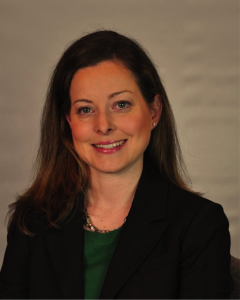 Dr. Megan Dunn Davison, Queens College, CUNY
Dr. Megan Dunn Davison, Queens College, CUNY
Title: The use of self-regulated strategy development instruction on written language outcomes in English language learners with language-based learning disabilities
Video Capture Intro starts at 3:30, talk at 5:15
Abstract: Learning to write for academic purposes requires students to process, organize, clarify, and refine their knowledge of concepts in systematic and strategic ways. Moreover, academic writing has a set of features, patterns, and rules that must be integrated and purposefully conveyed to include purposes and goals, multiple perspectives, and key concepts and main ideas all while considering audience needs. As a result, writing demands the skilled coordination of multiple cognitive resources for a priori planning, on-going evaluation, and self-regulation to produce a cohesive, coherent, and meaningful final product. Few empirical studies are available that demonstrate proven, effective clinical and educational strategies in the writing instruction of English language learners (ELLs) with language-based learning disabilities. Results of a pilot intervention study examining self-regulated strategy development (SRSD) instruction with urban, middle school ELL students with language-based learning disabilities will be discussed.
Bio: Megan Dunn Davison, PhD, CCC-SLP is an Assistant Professor in Linguistics and Communication Disorders at Queens College, CUNY. Dr. Dunn Davison’s research focuses on the contributions of early language development to later reading outcomes in at-risk preschool children and school-age children with language-based learning disabilities. Current research projects include examining the use of complex syntax by preschool teachers in classrooms serving at-risk populations and its relationship to child vocabulary and early literacy outcomes and examining the language outcomes of a written language intervention with middle school students language impairment. She is a certified speech-language pathologist. She has received funding from the American Speech-Language-Hearing Association Foundation and the Graduate Research Technology Incentive at CUNY.
Thursday, September 24th, 3:30pm, Ritter Hall 477A
Dr. Emily Farrell, Walter de Gruyter, Inc., Boston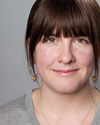
Workshop facilitated by GSOLT, Graduate Students of Language at Temple
Abstract: The traditional path from the PhD is directly into an academic position. While an academic career remains, for most, the desired next step following a doctoral degree, there can be various reasons to look at other pathways. A career in academic publishing is one possible professional direction after a PhD. In this workshop, I will discuss some of the roles available in publishing and the steps towards pursuing such a career.
Bio: Dr. Emily Farrell has worked as both an acquisitions editor and a library sales manager for the publisher De Gruyter. She received her PhD in Linguistics from Macquarie University in 2009 under the supervision of Ingrid Piller. During her doctoral work she was a visiting student at Temple University with Aneta Pavlenko.
Monday, October 5th, 3:30pm, Kiva Auditorium
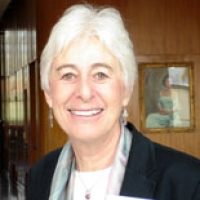 Dr. Claire Kramsch, University of California, Berkeley
Dr. Claire Kramsch, University of California, Berkeley
Title: Applied Linguistics: A Theory of the Practice
Video Capture Intro starts at 3:15, talk at 4:55
Abstract: Based on my own understanding of Applied Linguistics, I offer a reflection on the field not as the application of linguistic theory or any other theory to the “real-life problem” of language learning and teaching (Brumfit 1997:93, Knapp 2014) but as the practice of language study itself, and the theory that could be drawn from that practice. Similarly to what had oriented Bourdieu towards ethnology (Bourdieu 1990:7), I suggest that what Applied Linguistics offers language practitioners, be they teachers, learners, doctors, lawyers, or media experts, is a theory of their practice. Its object of study is the living process through which living, embodied speakers shape contexts through their grammars and are, in turn, shaped by them (Bateson 1979:18).
This does not mean that applied linguists don’t draw inspiration from theories that have been developed in other fields, such as linguistics, psychology, sociology or anthropology. But these theories are not blueprints for explaining the practice and then proffering recommendations for solving problems in the real world, or even for predicting the success of certain practices over others. Like any research on complex systems, the goal of applied linguistic research is twofold: 1) to observe, explain, analyze and interpret the practice and to communicate the results of its research to practitioners; 2) to reflect on both the practitioner’s and the researcher’s practice and to develop a theory of the practice that is commensurate with its object of study.
My vision for the future of Applied Linguistics focuses on the scientific advances made in the field and their impact on real-world practice, the tension between the technical and the symbolic dimensions of the field, the spread of English around the world, and the increasingly diverse research cultures in Applied Linguistics. I see three main challenges that Applied Linguistics will have to deal with in the coming decades: How to situate Applied Linguistics vis a vis related fields; how to validate the practice all the while that we are theorizing it; how to envisage a multilingual/ multicultural Applied Linguistics.
Thursday, October 15th, 3:30pm, Kiva Auditorium
Dr. Natasha Rulyova, The University of Birmingham, UK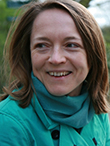
Title: Late Bilingual Writers and Collaborative Self-Translation: The Case of Joseph Brodsky (1940-1996)
Abstract: In this paper, I will propose that collaborative translation and self-translation are not mutually exclusive but, in fact, are two sides of the same coin. Independently, each field – collaborative translation and self-translation – has recently started to receive considerable scholarly attention. Self-translation has become a burgeoning subject of research since the 1980s (Grutman 2013; Boyden & De Bleeker 2013; Hokenson & Munson 2007). Collaborative translation is a newer field but has increasingly been gaining pace (Wakabayashi 2011; Cordingley forthcoming 2016). I will show that self-translation is, in fact, a form of collaborative translation.
I will also draw on the body of academic literature on collaborative writing (Stillinger 1991; York 2002). Jack Stillinger deconstructs the notion of the solitary literary genius by analysing manuscripts by renowned English authors, such as the Romantic poet John Keats (1795-1821) to argue that many famous poems were composed with the help of friends, editors and other unacknowledged co-authors. Lorraine York (2002) looks at the work by female writers and comes to the conclusion that women often seek collaboration in their writing projects.
Both, York (2002) who writes about female collaborative writing and Wakabayashi (2011) who analyses the depiction of collaborative translation in fiction, identify two types of collaborative work: overt and implicit. In other words, collaborative writing in native language or in translation could be either actively sought after and presented as a collaborative project, or it could be done implicitly, i.e. not identified as a piece of collaborative work when the text is published.
I argue that self-translation is often a type of implicit collaborative translation, especially in the case of late bilingual writers, such as Joseph Brodsky, a Russian-American Noble Prize winning poet. Brodsky was a late bilingual who arrived in the USA in 1971, having been exiled from the USSR. As he was mastering the English language, he was becoming more and more involved in the translation of his work by his translators (Weissbort 2004). Eventually, he felt confident to translate his poems himself but, as we can see from his manuscripts, he often sent his work to several native English speakers for some feedback. The manuscripts were often returned with grammatical, lexical and syntactical corrections and suggestions by his ‘co-authors’. The resulted text would often contain some of his ‘co-writers’ suggestions and/or corrections. However, the finalised texts were usually published as self-translations.
To understand collaborative self-translation in the work of late bilingual writers, it is helpful to turn to our understanding of bilingualism. It is possible to argue that late bilingual writers require a certain ‘reprogramming’ from one language to another (Pavlenko 2014, p.168). This process of re-programming is dialogic: bilingual writers do not only start a dialogue with their inner selves in L2 (Pavlenko 2014) but they are also in dialogue with native speakers of L2 who often become their implicit co-authors. It is in this dialogic process of co-creation, late bilingual writers conduct their self-translation.
Bio: Dr. Natasha Rulyova has research interests in three areas: post-Soviet Russian media including new media, translation studies with the focus on self-translation, and genre studies.
Her current work is focused on self-translation, as she is writing a book on self-translation as a type of collaborative translation by drawing on the bilingual work by Joseph Brodsky (1940-1996), a Russian-American Noble Prize winning poet. In 2002, she completed her PhD on Brodsky’s self-translations at the University of Cambridge. Since then, she has done some archival work at the Brodsky archive in Beinecke library, Yale. This work has led her to develop a theory of self-translation as a type of collaborative translation.
Her work on post-Soviet media resulted in the following main publications: monograph (with Stephen Hutchings) of Television and Culture in Putin’s Russia: Remote Control (London: Routledge, 2009), edited volumes (with Stephen Hutchings and Birget Beumers, Eds) The Post-Soviet Russian Media: Conflicting Signals (London: Routledge, 2009) and Globalisation, Freedom and the Media after Communism: The past as future (London and New York: Routledge, 2009), (with Jeremy Morris and Vlad Strukov) co-edited special issue on new media of the peer-refereed Europe-Asia Studies journal (Volume 64, Issue 8, 2012).
In the area of genre studies, she published a co-edited volume (with Garin Dowd, Eds) Genre Trajectories: Identifying, Mapping, Projecting (London, Palgrave Macmillan 2015) and two single-authored articles on genre and new media, and genre and identity (see the list of publications below). She also created a web resource of interdisciplinary presentations on genre, which were given in the course of the AHRC-funded project Genre Studies Network http://www.birmingham.ac.uk/schools/lcahm/departments/russian/research/genre-studies-network.aspx .
Thursday, October 29th, 3:30pm, Kiva Auditorium
Dr. Lourdes Ortega, Georgetown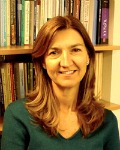 University
University
Title: How Successful are Multilinguals?: In Search of Workable Understandings for Research and Education
Abstract: The phenomenon of bi/multilingualism is as old as humanity, but multilingualism has been catapulted to a new world order in the 21st century. In today’s globalized, transnational, technologized, highly mobile and wired world, increasingly numerous and more diverse populations of adults and youth live with two or more languages. Some do by choice, some by necessity, many for a complex mixture of reasons. How successful are they in their learning of new languages, ultimately? Traditionally, the field of second language acquisition (SLA) has answered this question rather pessimistically. But this may be a function of the willingness to directly compare the development of single-language competencies during early childhood to the development of multiple-language competencies later in life. This comparison is fundamentally invalid. Moreover, when multilingual success is directly compared to monolingual success, a late start will always lose out. I will explore an alternative view of multilingual success that is continuous and probabilistic, and that goes beyond language. It is continuous because the single phenomenon to be explained is the development of multiple-language competencies across the lifespan. Therefore, the same explanations can be investigated for early and late bilingualism: differential experience of language during usage events. It is probabilistic because we must make space for degrees of success, rather than categorical success or failure, for both early and late timings for multilingualism. Understandings of success must also go beyond language because strictly linguistic notions of multilingual competencies are insufficient to properly understanding the object of inquiry, since language mediates intersubjective thinking, feeling, and doing with others. A continuous, probabilistic view of multilingual success that is more than just linguistic in scope has transformative implications for SLA research and also for language teaching in educational contexts. It holds great potential to generate a research base that supports current innovative proposals for multilingual and transcultural approaches to language instruction.
Bio: Dr. Lourdes Ortega is Professor in the Department of Linguistics at Georgetown University (GU). She has mentored many master’s and doctoral students at GU but also previously at Georgia State University, Northern Arizona University, and the University of Hawai‘i at Mānoa. Her main area of research is second language acquisition. She investigates questions that impact on youth and adults’ cognitive, social, and educational well-being when they learn new languages later in life. Her other interests include second language writing, systematic research synthesis, and foreign language education. She also likes reflecting about the world of researchers and their activities: For what and for whom are different kinds of research good? What are valued ways to know about second language acquisition and why? How do ideologies of language affect how people investigate, teach, or learn languages? In the last few years she has become interested in applying insights from bilingualism and from usage-based linguistics to the investigation of second language development. Two central questions in this new agenda are: How does experience shape language learning? What counts as success in bi/multilingual acquisition, and who is to tell?
Lourdes grew up in southern Spain, where she received her first degree in Spanish Philology. After spending a year abroad in Germany, she lived in Greece for 7 years and developed her first career as a language teacher of Spanish at the Cervantes Institute in Athens. She relocated to the United States in 1993 to do graduate school, and the US has been her chosen country to work and citizenship since then.
Lourdes was co-recipient of the Pimsleur and the TESOL Research awards (2001) and has been a doctoral Mellon fellow (1999), a postdoctoral Spencer/National Academy of Education fellow (2003), and a senior research fellow at the Freiburg Institute of Advanced Studies (2010). Her publications include articles in flagship journals such as Annual Review of Applied Linguistics, Applied Linguistics, Journal of Second Language Writing, Language Learning, Language Learning & Technology, Modern Language Journal, Studies in Second Language Acquisition, and TESOL Quarterly. She serves or has served on the editorial boards on a number of these and other journals. Her most recent books are Technology-Mediated TBLT: Researching Technology and Tasks (co-edited with Marta González-Lloret, John Benjamins, 2014) and Understanding Second Language Acquisition (1st edition with Hodder, 2009; 2nd revised edition with Routledge, 2016). She served as area editor for “Language Learning and Teaching” for the Wiley Encyclopedia of Applied Linguistics (2012-2014) and just finished her term as Journal Editor of Language Learning (2010-2015).
Wednesday, December 2nd, 3:30pm, Kiva Auditorium
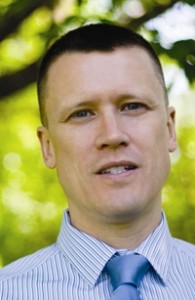 Dr. K. David Harrison, Swarthmore College
Dr. K. David Harrison, Swarthmore College
Title: Endangered Languages
Video Capture Intro. begins around 33:10, talk at 35:38
Abstract: The world’s 7,000+ languages are in drastic decline, and most are predicted to vanish before they will be recorded or documented. This talk demonstrates how language extinction leads to intellectual impoverishment in all fields of science and culture. Concerted efforts to sustain, value and revitalize our linguistic diversity are now underway in indigenous communities worldwide, and may help to reverse the process. Audio and video recordings from endangered language communities around the world help to illustrate this trend.
